Research
Pandemic perspectives in an unequal society
"Covid-19 exposed the crude underbelly of South Africa (SA). The lockdown exposed our deep economic divides, which manifested in starvation, foods riots and increasing incidence of malnourishment including in our hospitals while the affluent retreated into secluded suburbs or fled to their holiday homes," said Prof Adam Habib, Vice-Chancellor and Principal of the University of the Witwatersrand (Wits). He delivered the Unisa Founders Lecture on 23 September 2020, entitled "Covid-19: What it reveals about who we are and what we could be".
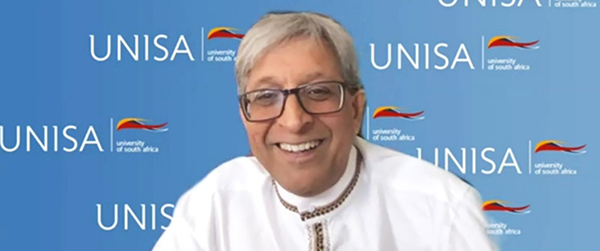
Prof Adam Habib, an academic, researcher, activist and renowned controversial political commentator with over 30 years of academic experience, delivered the 2020 Unisa Founders Lecture.
Speaking frankly on present pandemic perspectives in an unequal country, Habib said it is often said crises reveal who we truly are, and this is as true for societies as it is for individuals. "Covid-19 has revealed SA’s bipolarity, its deep inequalities and the schizophrenic character that this engenders," he said. "The society on the one hand aspires to and revels in being recognised as world-class, politically sophisticated and socially caring. But when this is rent asunder by the structural realities of our social and economic context, the society quickly degenerates, manifesting in polarised political divides and reflecting embittered social actors embroiled in accusatory and ideologically laden contestation."
According to Habib, managing pandemics in unequal societies has also unequal consequences, thereby making government officials vulnerable to charges that its actions are more prejudicial to the poor than they are to the middle classes and the rich. "This," he said, "is a serious political conundrum in a politically polarised society, especially for a party that derives much of its support from the poor and the marginalised." However, he added, the challenge is not limited to the politicians of the ruling party. It also infects the understandings of a variety of other stakeholders.
Habib further explained: "This was brought home to me at the beginning of the pandemic when we shifted to emergency remote learning at Wits so as to not lose the academic year for our students. This was quickly opposed by student leaders, academics and politicians. In their view social justice requires that if everyone cannot learn no one should."
Pragmatic yet progressive strategy
Exploring strategies that can help the government to manage the pandemic, Habib started by addressing the problem with the strategy of the comprehensive imposition of penalties. He said that "it provokes resistance across the board and government is then forced to make concessions, which are then perceived by some stakeholders as capitulating to entrenched privileged interests." Habib advised the government and other stakeholders to adopt a pragmatic, yet progressive strategy to manage the pandemic.
He believes that this would hold that social justice does not require a reversion to the lowest common denominator. Instead, said Habib in his thought-provoking presentation, "it would hold that social justice requires an awareness of inequality and a conscious attempt to mitigate its consequences through addressing the inequities themselves." Habib gave an example of how Wits and other universities that established a computer loan facility, despatched computers to thousands of students who did not have a device and arranged 30 gigabytes of data for students at no cost to themselves.
"South African Breweries distribute alcohol to shebeens in every township in this country every single week, yet we struggle to distribute food parcels. Why not adopt or employ South African Breweries to distribute the food parcels? South African Breweries distribute alcohol every single week to every shebeen yet the Department of Education struggles to distribute textbooks to schools. Why not draw on the logistics capacity that exist in this context. We have one of the most sophisticated banking systems in the world; why are we struggling to distribute R350 of social support grant funds that the state has made available in this context?"
In his welcoming remarks, Prof Mandla Makhanya, Unisa Principal and Vice-Chancellor, stated also that the Covid-19 pandemic had exposed the weaknesses and shortcomings of the higher education sector and individual institutions. But, he added, it had also shown us our strengths and provided us with a very unique window - a very rare moment in time - for us to change things around.
"Change and transformation are perhaps the key characteristics of human development and progress. They are also dynamics that are difficult to accept, let alone master. We are indeed living in trying, but exciting times. I remain firmly of the view that human ingenuity can and will triumph," he concluded.
The lecture, attended by, among others; the university’s chancellor, HE Thabo Mbeki, former chancellor, Judge Bernard Ngoepe, and Council members showed how the gap between the poor and rich widened during Covid-19.
Introduced at Unisa in 2003, the purpose of the Founders Lecture is to encourage the university and its stakeholders to focus on critical issues in higher education at both global and national levels. Over the years a variety of topics, presented by eminent and renowned scholars from across the continent and the globe, have established the lecture as a premium forum for intellectual engagement of the highest order.
* By Lesego Ravhudzulo, Journalist, Department of Institutional Advancement
Publish date: 2020-10-02 00:00:00.0


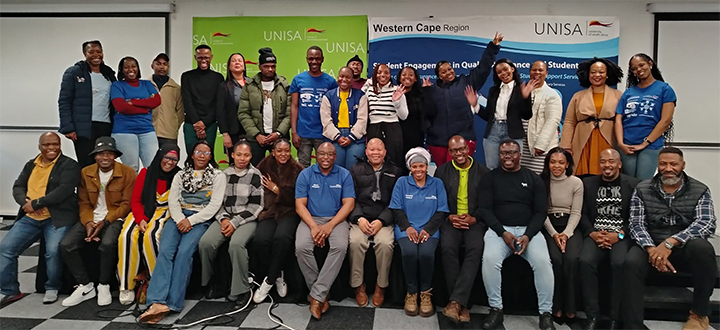 CAS students take centre stage in shaping academic quality and support
CAS students take centre stage in shaping academic quality and support
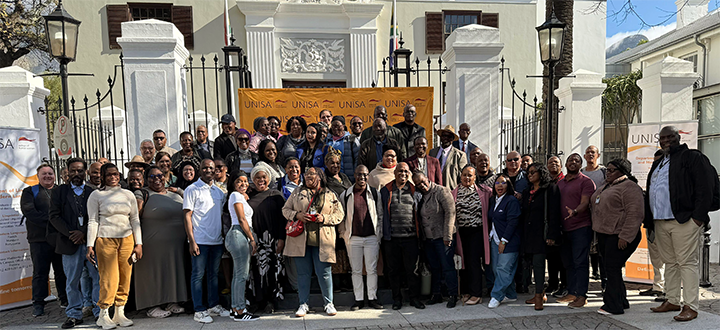 Unisa engaged scholarship project heads to parliament
Unisa engaged scholarship project heads to parliament
 Unisa and ATUPA recognise researchers for ingenuity and innovation
Unisa and ATUPA recognise researchers for ingenuity and innovation
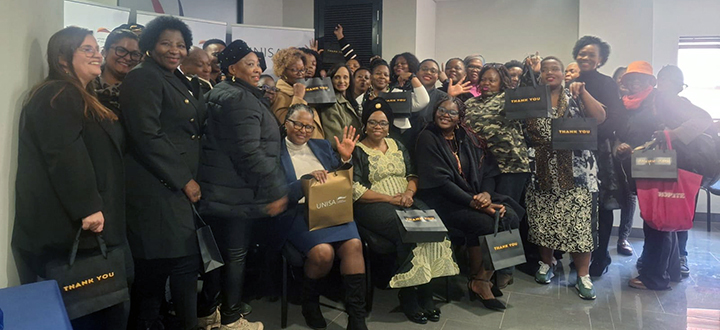 Recognising the unceasing resilience of women
Recognising the unceasing resilience of women
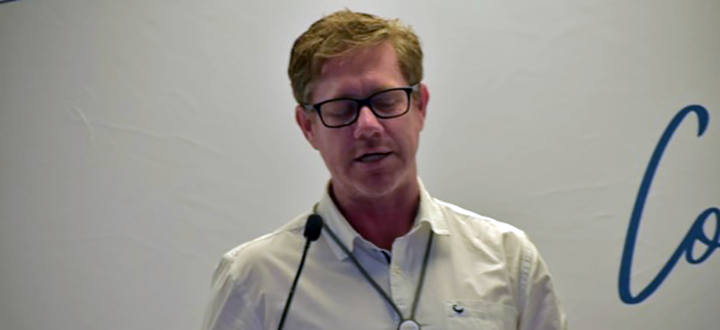 Unisa and SHECASA promote institutional health and safety
Unisa and SHECASA promote institutional health and safety